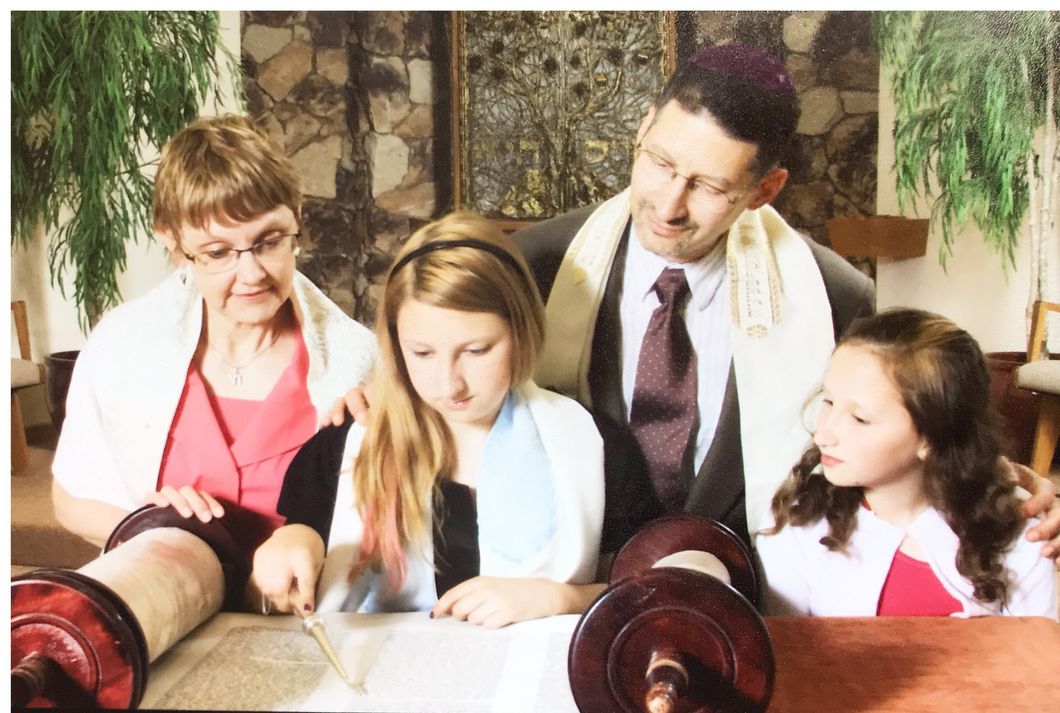It's not exactly a unique story. A child is born to religious parents, raised in that faith, taught to pray, and guided through all the rituals and ceremonies that come with it. But somewhere along the way, that child doesn't feel right. The words she is told to say don't ring true, the beliefs she is expected to hold don't reflect what she truly thinks, and religion starts to feel like punishment.
I've heard it from people raised Catholic, Protestant, Muslim, and Hindu, and people seem to get it.
So why do so many people still refer to me as Jewish even after I tell them, practically beg them, not to?
Since before I can remember, I was learning Bible stories, prayers, keeping Kosher, observing the Sabbath, everything. I didn't start to realize something was off until I began attending a private Jewish school, which I proceeded to do for nine years. More and more of my time was filled with praying to a God I never really believed in, and in middle school especially, I started to develop opinions that weren't in line with what I was being taught. I was told things about the Israeli-Palestinian conflict that didn't sit well with me and I found heavily biased. I never understood why I should follow rules and restrictions that had no meaning to me and didn't make me feel connected the way religious observance is supposed to. But more than anything, I just never felt like I belonged, a feeling I can't fully put into words.
I didn't want to have a Bat Mitzvah, the crucial right of passage for Jewish teens to become adults, but I knew protesting wouldn't work. I think back to all those hours spent memorizing and reciting and how much I wished I could be literally anywhere else, doing anything else. If the loving God I was taught to believe in really does exist, wouldn't he see how out of place I felt? I wish I had stood up for myself more.
To me, this is more about a cultural failure to recognize that religion, for many people, is more personal than ever. All my religious friends talk about their relationship with their higher power and how the practices of their faith bring them closer to that power and enable them to be a better person. I wish religious upbringings could reflect this, rather than pushing that the antiquated belief that if a person's parents believe something, they should too.
Jewish identity, however, tends to be more complex than for some other religions. The elements of spirituality are deeply intertwined with culture and heritage. The Jewish faith has lived on and evolved for thousands of years through families, not so much through mass conversion, the way many cultures adopted Christianity and Islam for example. My dad's family has lived in the US for over a century and a half but can trace their roots back to Jewish communities of Germany and Prussia. My mom, on the other hand, was raised Protestant, but that never felt right for her, and as an adult, she converted to Judaism.
What I've struggled to explain to people is that you can be proud of your heritage without belonging to the same religion or religious community as your family. Jewish communities worldwide have endured a lot of persecution and struggle but have persevered and held on to their faith nonetheless. I am so proud to be their descendant, just like I am proud of my Scottish ancestors who fled persecution by British soldiers occupying their town. I don't have the same beliefs as the Presbyterian side of my family, but does that make me any less related to them, or any less connected to them? No.
I love my family, which is why it hurt so much to hear from my mom that she was ashamed to hear that I didn't feel Jewish and didn't want it to be a part of my life or identity. Even though I cared about others and lived my life with the same honesty and integrity she and other religious people do, that didn't matter because of a label? My mom has since passed away, and I will never know how she might have reacted to me sharing this. I know for a fact a lot of my friends and family would still rather look the other way than accept me for who I am. It's a struggle I'm reminded of every time someone says "You'll come back to it when you're older," as if 21 is too young to know who I really am.
But at the end of the day, my faith, or lack thereof, is none of their business. If you don't believe me when I say who I am, that is no fault of mine.
















